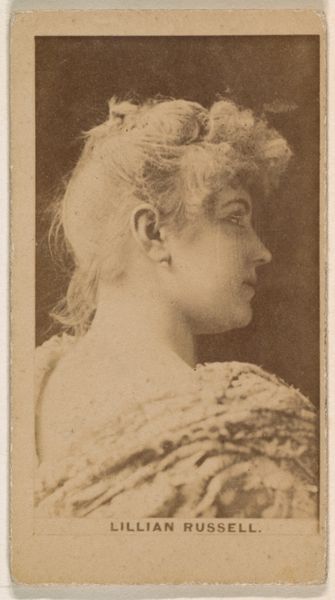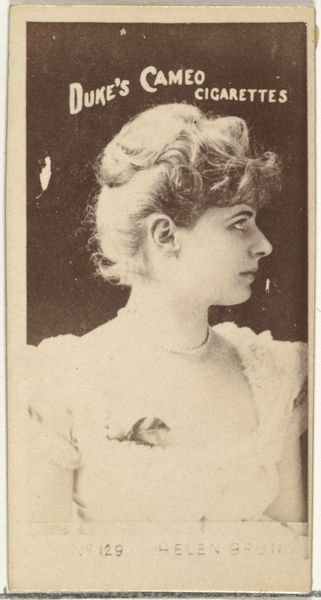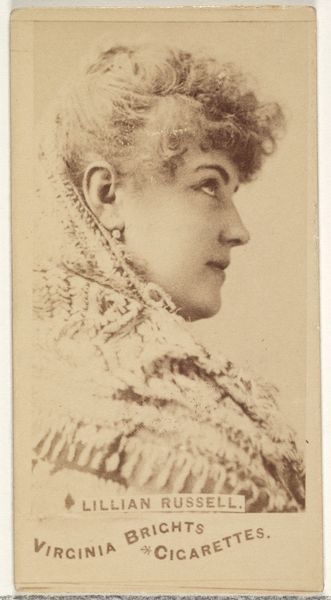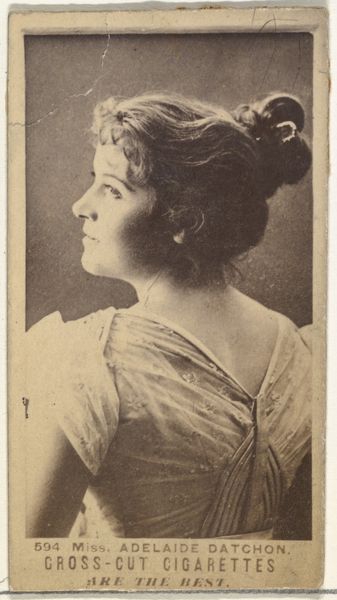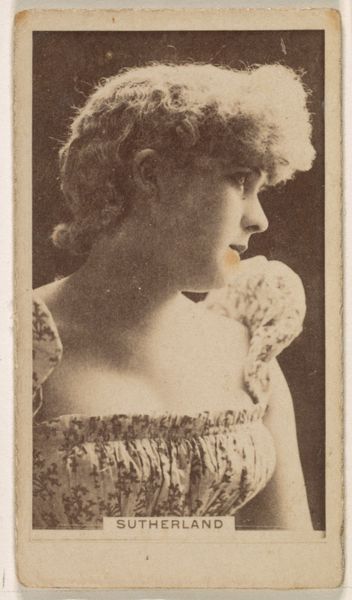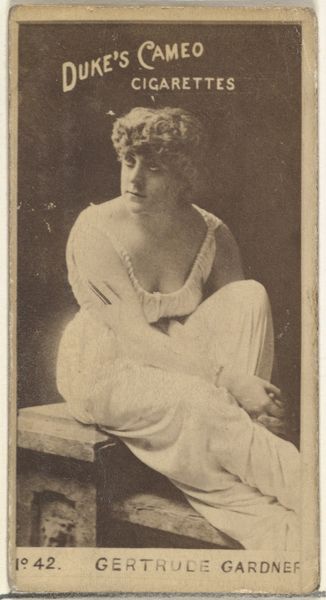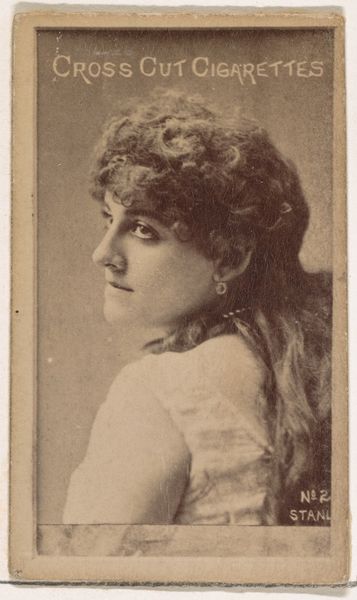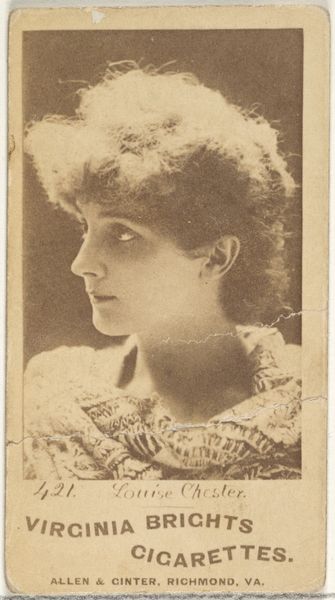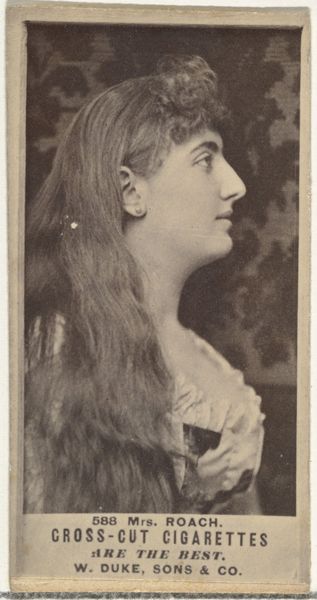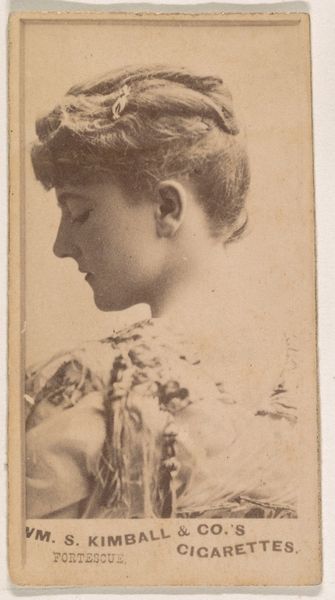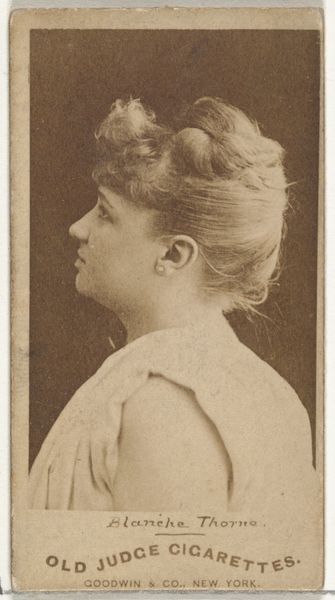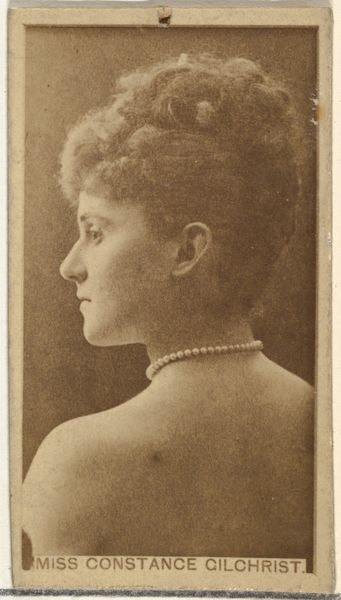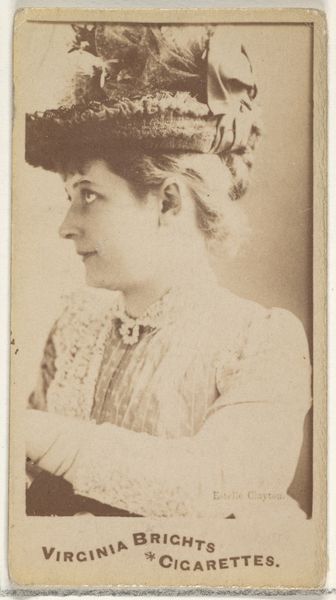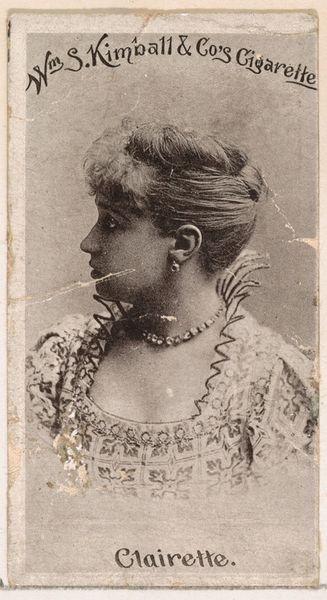
Card Number 583, Lillian Russell, from the Actors and Actresses series (N145-3) issued by Duke Sons & Co. to promote Cross Cut Cigarettes 1880s
0:00
0:00
drawing, print, photography
#
portrait
#
drawing
#
toned paper
# print
#
impressionism
#
photography
#
portrait reference
#
academic-art
Dimensions: Sheet: 2 11/16 × 1 3/8 in. (6.8 × 3.5 cm)
Copyright: Public Domain
Curator: Ah, let’s consider this portrait of Lillian Russell, card number 583 from the Actors and Actresses series. It was issued in the 1880s by W. Duke, Sons & Co. to promote their Cross Cut Cigarettes. Editor: Instantly, I see a profile bathed in a warm sepia tone. It feels a bit… melancholy? Nostalgic, maybe? It’s captivating. Curator: Well, these cards weren't exactly made to last. Their very purpose was entwined with a transient act of consumption. They highlight the intersection of art, commerce, and celebrity culture during that period, made from cheap print and photography processes of the day. Think about the labor involved in tobacco production, card printing, distribution—all aimed at cultivating consumer desire. Editor: Absolutely. It is like, beauty distilled to its smallest purchasable unit, literally. But there's something almost heroic in this promotional bit of ephemera: immortalizing Lillian Russell in a way perhaps high art wouldn’t have at the time, mass producing her allure and presence. The woman has such power on her expression. Do you think the average smoker knew much about her or they just collected the cards, trading on this instant recognition of celebrity? Curator: Precisely! It’s a democratization of fame through the medium of consumer goods. The image is not simply about Russell's beauty, it’s about crafting a public persona, an aspirational figure connected to a lifestyle attainable, supposedly, through a pack of cigarettes. Her name is also highly visible under the "Cross-Cut Cigarettes are the Best." This simple, effective marketing highlights the connections of smoking as an avenue for experiencing the finest things. Editor: It does create an intriguing tension between her apparent refinement and this very industrial form of reproduction. Like a whisper of elegance amid a sea of commodities. Curator: Exactly, an element easily missed looking only for aesthetic appreciation, I would say! Editor: Yes, and now it makes the mood of the picture deeper than melancholy, more than nostalgia...it feels like history as a collection of echoes...fascinating to consider. Curator: Indeed, it certainly allows for fascinating interpretations when considering historical context, means of production, and of course, commercialization of visual art.
Comments
No comments
Be the first to comment and join the conversation on the ultimate creative platform.
